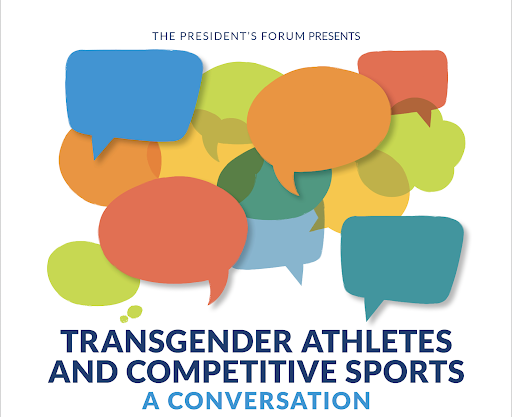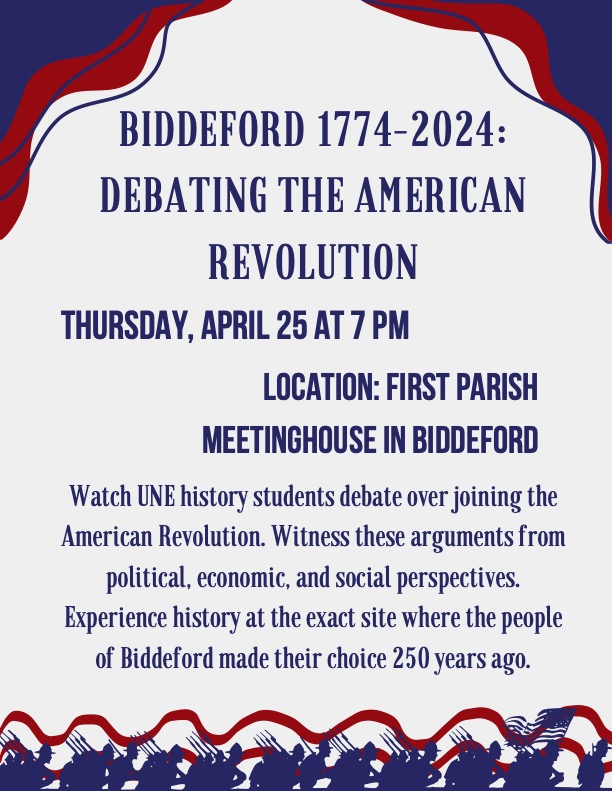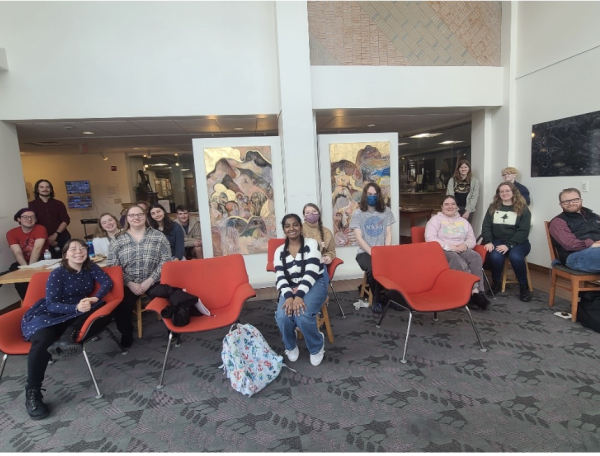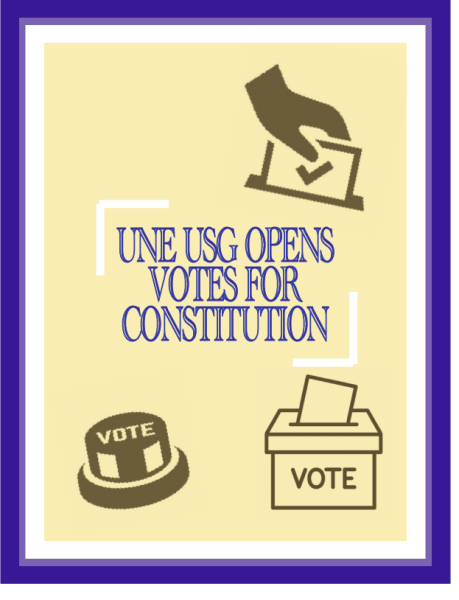UNE Hosts: Transgender Athletes and Competitive Sports, A Conversation
Two prominent figures in the Transgender Athletes’ discussion open up a safe place for UNE students to witness and participate in a necessary conversation.

(Photo pulled from Overview and Current Status | University of New England in Maine)
On March 6th, from 6:00 pm-7:30 pm, roughly two hundred students, faculty, and staff crowded into the Harold Alfrond Forum to witness a discussion on transgender female athletes in competitive sports. The debate was between Caroline Hooven, a biological female* with a Ph.D. from Harvard, and the author of T: The Story of Testosterone, the Hormone that Dominates and Divides Us, and Steph Richards, a transgender woman and founder of Steph’s Place UK.
President Herbert initiated the event with an opening speech, imploring students to address this topic with “humility, curiosity, and civility.” He discussed the problematic nature of our highly polarized society and further emphasized the need for empathy and respect.
Then, moderator Jeanne Hey, former dean of UNE’s College of Arts and Sciences, explained that Hooven and Richards would get ten minutes to address their point. Following their speeches, Hey told the audience that she would ask both participants some questions before opening that opportunity to the audience.
Hooven started the conversation by addressing that the University of New England had difficulty finding speakers for this event and was incredibly grateful that she and Richards had been given this opportunity. Tearing up, Hooven stated that she did not believe transgender women should be allowed to compete with biological women in sports. As evidence, she addressed biological men’s physical traits, such as stronger bone density and more muscle mass; testosterone is the curator for both of these. Hooven ended her speech by asking everyone to consider the idea of inclusion vs. exclusion, stating that despite its negative connotations, exclusion isn’t always wrong.
Richards was then given the opportunity to present her opinion, stating that participation in sports is a human right. Using financial doping as evidence, she claimed that no sport is fair and everybody has unique life advantages.
Addressing testosterone as a privilege, Richards counters Hoover, saying that women with Polycystic Ovary Syndrome (PCOS) are not seen as having an edge, so why should transgender women be seen as advantaged? She concluded with a plea not to take a blanket approach on this subject but to address each circumstance individually instead.
Once both women explained their beliefs, Hey questioned why Hooven was so intent on using sex and testosterone as evidence for advantage over other plausible inequalities teammates may have. Hooven explained that the traits and processes associated with sex during puberty were unalterable, as testosterone affects how genes translate into muscle. As such, once someone with XY chromosomes undergoes development, they have forty percent more muscle mass than someone with XX chromosomes.
Hooven also commented that although women battling PCOS have higher testosterone, their testosterone level is not as high as the lowest level of testosterone someone with XY chromosomes has. To conclude, she explained why she believes that transgender women would unfairly take away opportunities from biological women due to their physical advantages.
Richards then began to discuss whether fairness was truly the root of the dilemma. She explained that there will always be someone with an advantage, whether physical, mental, monetary, or otherwise. Richards also pointed out the fact that biological women have advantages such as balance and flexibility, lending to the idea that physical disadvantage, in this sense, is an illusion.
Throughout her argument, Richards used examples like Lia Thomas, the first openly transgender athlete to win an NCAA Division I national championship, and Laurel Hubbard, the first openly transgender woman to compete in the Olympic Games. Demonstrating that although transgender women do win, there are many instances of biological women beating them. This brought her back to her main point: playing sports is a human right and should not be perceived through a lens of fairness or unfairness.
The remainder of the conversation stayed within the context of transgender women who had transitioned after puberty attempting to play competitively in non-contact sports. Neither of the women felt there was enough scientific evidence to properly discuss transgender female athletes who transitioned pre-puberty or the repercussions of transgender females in contact sports. However, both women said they would be open to whatever data future research in those areas may bring.
After a handful of questions, Hey opened up the opportunity to any students, faculty, or staff who wanted to ask Richards or Hoover something. Students asked whether the psychological disadvantages of being a transgender athlete countered the physical advantages, what Hoover thought was the best method of letting transgender athletes play, and how social media played a role in both Hoover’s and Richard’s opinions.
Hey concluded the discussion by asking both women what they felt was the strongest component of the other person’s argument. Richards jokingly explained that she was not a scientist and therefore felt that scientific background was Hoover’s strongest appeal. Adding that despite the various studies Richard mentioned, she still believes that playing sports is a human right.
Hoover then stated that the human rights aspect of this discussion was something she felt the most persuaded by in Richard’s argument, but concluded that she values science utmost. Hoover finalized her statement by questioning how to get data on transgender female athletes without posing a physical threat to any biological female athletes. Again, stating that she would be open to whatever results future studies will bring.
By the end of the event, both women had agreed that it is important for transgender athletes to get the opportunity to play competitive sports. However, Hoover felt they would be better served on their own unique team than a women’s team. Hoover defined this new team as a humanities team, one where anyone would be allowed to play without fear of exclusion. Richards questioned the psychological damage a humanities team might bring, however, conceded this may be the best route for contact sports until more studies are done regarding physical repercussions.
The event finished with Richards and Hoover asking all in attendance to approach this topic with discussion instead of polarization, stating that having a conversation is the best possible method to acquire a solution, whatever that solution may be.
*Language and terminology used in this article are reflective of the language and terminology used by Richard, Hoover, and Hey. The vocabulary and opinions used and inserted do not reflect the opinions of Hedegard or The Bolt*














